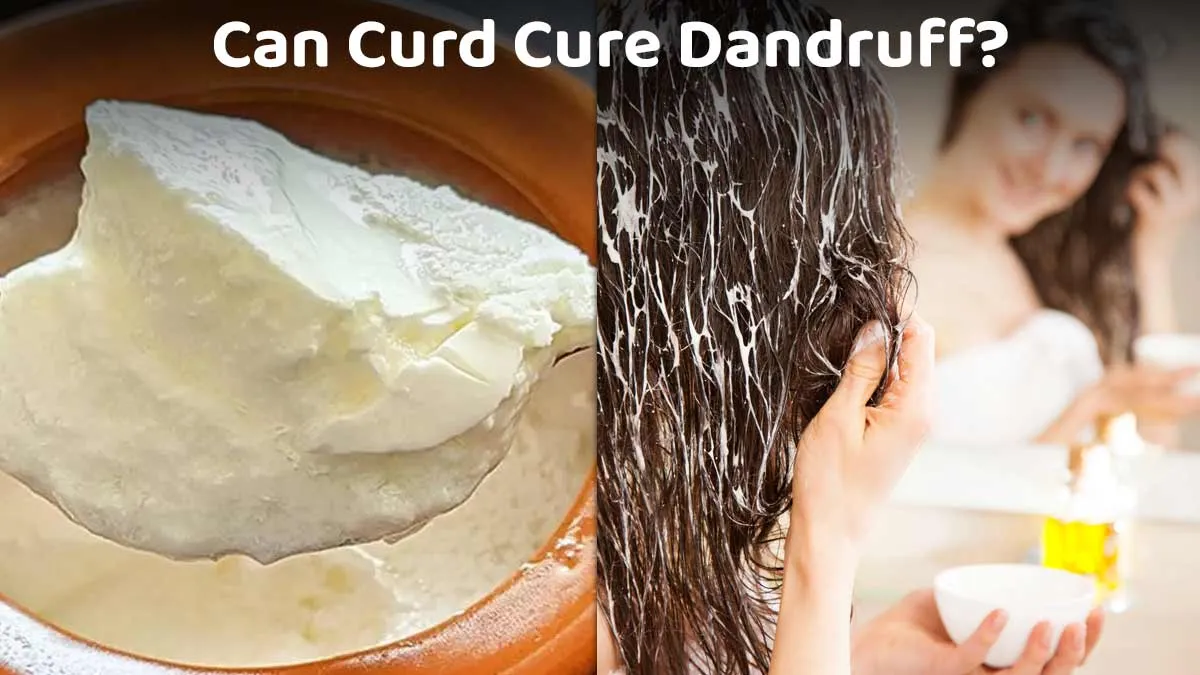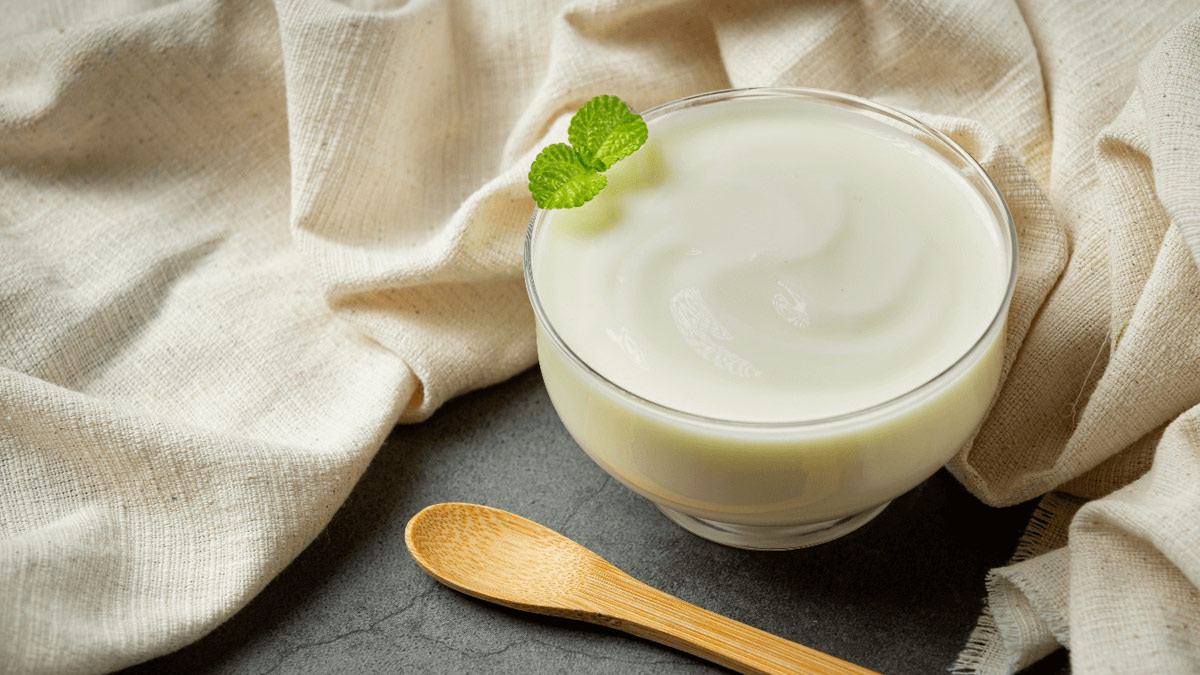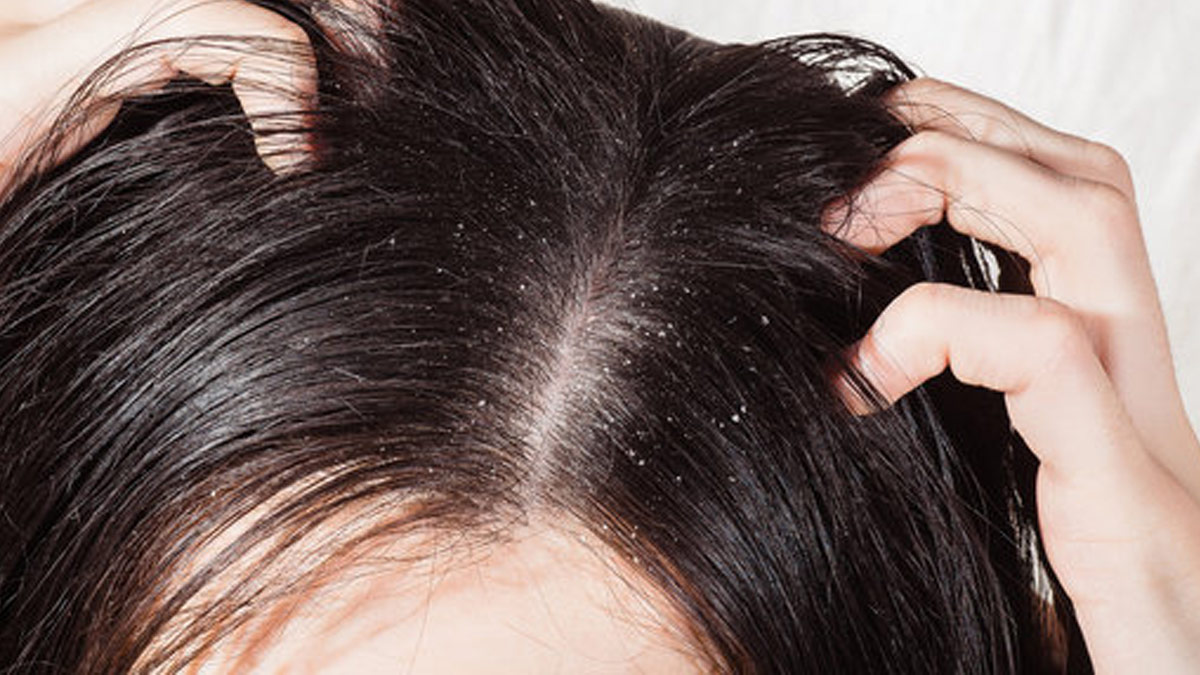
Hair health is a big concern for many of us. We all want shiny, strong hair and a scalp free from flakes. But when dandruff strikes, people often turn to home remedies passed down by family like applying curd to the scalp. It sounds simple and natural. But can curd really cure your dandruff, or is it just another myth? Read ahead to find out what an expert has say and what actually works.
Table of Content:-
Does Curd Really Work for Dandruff?
View this post on Instagram
Dr Ankur Sarin, Hair Transplant Surgeon, Sarin Skin Clinic, New Delhi, has a clear answer: “Curd is not at all useful for dandruff. Curd has lactic acid. And lactic acid is good for your skin. So apply it on your skin, not on your scalp.” This means that while curd may help your skin feel soft and smooth, it doesn’t solve the root cause of dandruff on your scalp. Dandruff is often caused by a fungus, excess oil, or skin irritation and not something curd can fix.
What Does Curd Actually Do for Your Hair?![curd for hair 1 - 2025-06-05T173843.084]()
Many people claim that curd helps reduce dandruff because it’s cool and soothing. Curd contains lactic acid, which has mild antimicrobial and exfoliating properties. It can moisturise the scalp, calm itching, and make hair softer and shinier. Some people even mix curd with lemon or honey for a homemade hair mask.
But according to dermatologists, curd may only help with the symptoms. It can give temporary relief from dryness and itching, but it does not cure dandruff. If you use curd, apply it once a week, leave it on for 20–30 minutes, and wash thoroughly. Leftover curd can cause build-up or a bad smell.
ALSO READ: Gua Sha For Hair: Simple Tips To Boost Your Scalp And Hair Health
Why Curd Can’t Cure Dandruff
Dandruff is a stubborn problem. It’s usually caused by a yeast called Malassezia, which lives on everyone’s scalp. When it grows too much, it causes flakes, itching, and irritation. Curd does not kill this fungus or stop it from coming back.
For real dandruff control, experts recommend medicated shampoos with ingredients like ketoconazole, zinc pyrithione, or salicylic acid. These target the fungus and help clear flakes for good. If you have sensitive skin, always test any new remedy on a small patch first.
There are many other household items people use for dandruff, like coconut oil, aloe vera, and tea tree oil. Some of these have mild anti-fungal or soothing effects, but none are proven cures. They might make your scalp feel better for a while, but the dandruff often returns.
How to Really Beat Dandruff![curd for hair 2 - 2025-06-05T173841.455]()
- Use a good anti-dandruff shampoo as recommended by your doctor.
- Wash your hair regularly to keep the scalp clean.
- Avoid scratching or picking at your scalp.
- Eat a balanced diet and manage stress, as both can affect your scalp health.
- If dandruff is severe or doesn’t go away, see a dermatologist.
ALSO READ: Pineapple For Hair: Here's How It Can Help In Promoting Hair Health
Conclusion
Curd is a wonderful food for your body and can make your skin feel smooth. But when it comes to dandruff, it’s not a cure. As the expert says, save the curd for your skin, not your scalp. For real dandruff relief, stick to proven treatments and talk to your doctor if you need help.
Also watch this video
How we keep this article up to date:
We work with experts and keep a close eye on the latest in health and wellness. Whenever there is a new research or helpful information, we update our articles with accurate and useful advice.
Current Version

